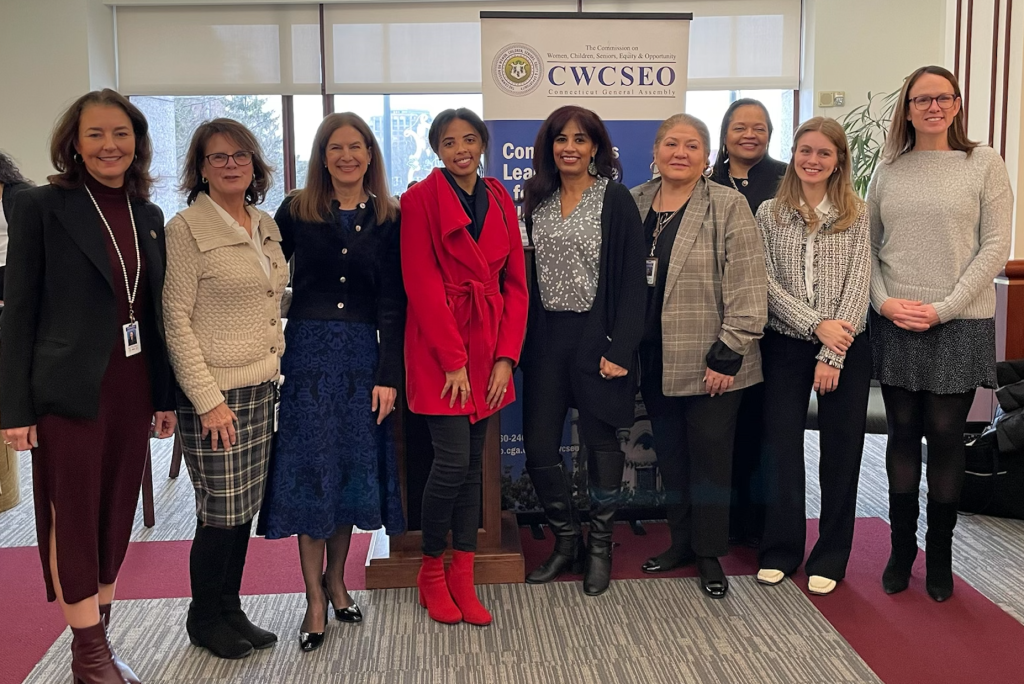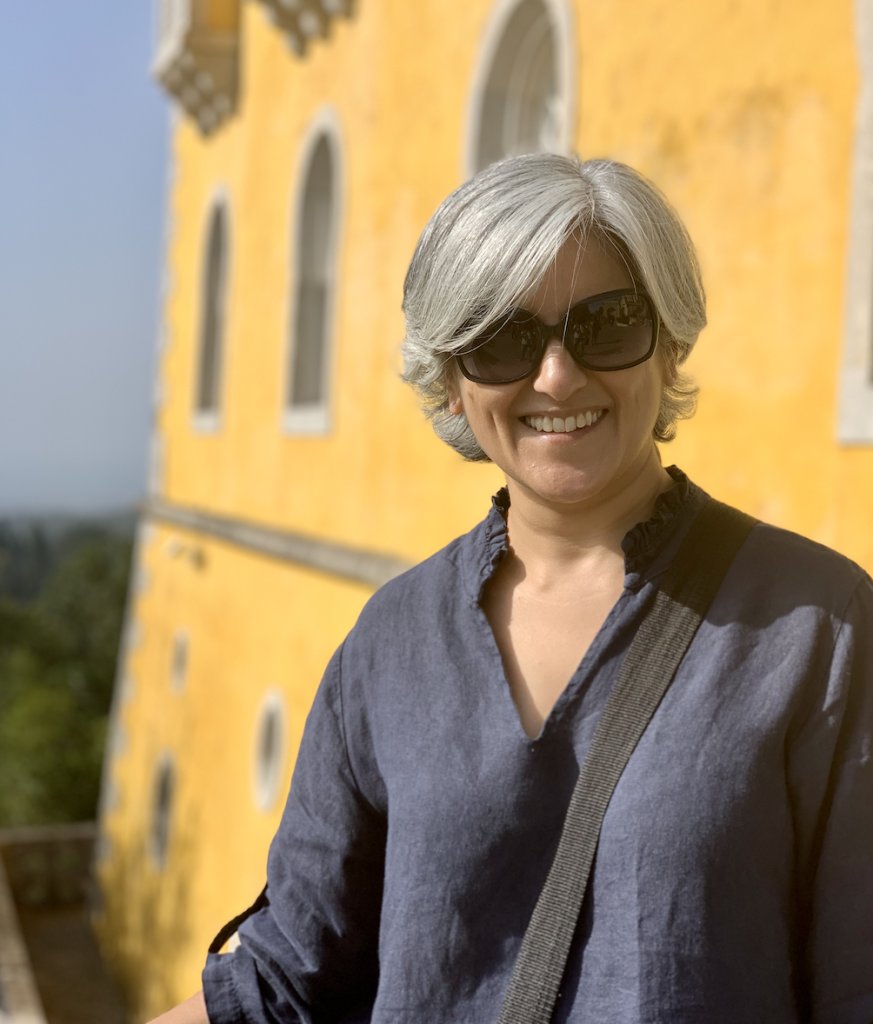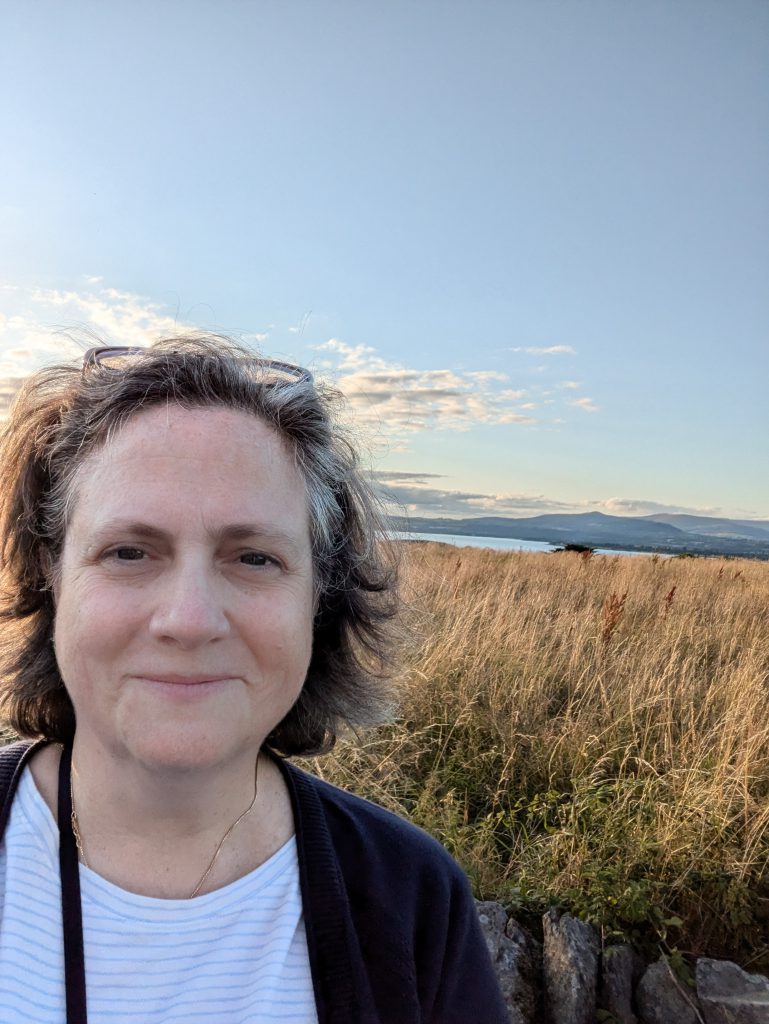Engaging the Next Generation: A Conversation on Female Genital Mutilation/Cutting

By Katie Bai On Tuesday, February 18th, Sahiyo had the privilege of speaking to students at a Connecticut high school government class at the Academy of Information Technology & Engineering in Stamford, Connecticut (CT). Our presentation focused on the impact of female genital mutilation/cutting (FGM/C) on Connecticut communities, the urgent need for state laws, and ways students can actively engage in advocacy. We began our talk by introducing the history of FGM/C in the United States and then discussed the prevalence of the harmful practice in Connecticut. From there, we shared a survivor’s story from Sahiyo’s Voices to End FGM/C digital storytelling project, discussed the 2025 Bill that seeks to protect children from FGM/C, and concluded with ways in which students could get involved in addressing this issue. From the moment we began, it was clear that these students were deeply engaged and interested in what they could do to get a law passed in the state. The students demonstrated a strong grasp of both the policy landscape and the human rights implications of FGM/C. Their curiosity and critical thinking skills were evident as they asked about the legal gap between the federal ban on FGM/C and the state law, understanding that state laws must be comprehensive in protection for survivors and offer opportunities for education and outreach for communities. The students were also able to see the important role that cultural sensitivity plays in advocacy efforts, and they asked additional questions like: “Is there any correlation on the state level between FGM/C and abortion laws?”, “Are Latin American countries experiencing FGM/C or is there simply a lack of data?”, “Why did the CT bill to ban FGM/C die in 2018?” Seeing these young minds so eager to be part of the solution reaffirmed the importance of these conversations and the power of education in mobilization. One of the key takeaways from our discussion with the students was that FGM/C is not just an issue happening “somewhere else.” It is a concern within the state of Connecticut, impacting real people in ways that often go unnoticed. We amplified the importance of closing legal loopholes and ensuring that survivors and at-risk individuals of FGM/C have the protections and support they need at the state level. We hope any legislation in Connecticut will address these components. As presentation facilitators from Sahiyo, we left the Academy of Information Technology & Engineering feeling hopeful and energized by the students. If the students in this class are any indication of the next generation of leaders, the future looks incredibly promising – but only if we all take action to protect it. A huge thank you to the students and their teacher, Claude Morest, for welcoming our team to speak and for their commitment to learning about and addressing this critical human rights issue. At Sahiyo, we strive to continue conversations through education programs and advocacy efforts, building towards a future free from FGM/C. If you would like to support us, consider donating to support our work. Let’s keep the conversation going and work together toward a future free from FGM/C! Join us in safeguarding girls from FGM/C in Connecticut! Connecticut residents, sign our Call to Action.
Legislative Briefing on FGM/C in the State of Connecticut: A Collaboration between the Connecticut Coalition

On January 13th, the Connecticut Coalition to End FGM/C hosted a legislative briefing at the Legislative Building in Hartford, CT. The briefing was held in partnership with Sahiyo, Equality Now, and the U.S. Network to End FGM/C. The briefing provided an opportunity to learn more about the topic of FGM/C and the need to pass a law protecting children from it. Speakers included: Lieutenant Governor Susan Bysiewicz Mariya Taher Representative Jillian Gilchrest Siminesh Comollo The speakers discussed the importance of increased awareness of FGM/C as an issue local to the state of Connecticut, and the need for a specific state law against FGM/C. The briefing was intentionally held at the start of Connecticut’s next legislative session in order to introduce and pass a comprehensive bill protecting children from FGM/C and to create resources to support survivors. The Lieutenant Governor and Connecticut Representatives highlighted that pressure and advocacy by local, national, and international actors would help to make passing legislation possible. (Mariya Taher, Sahiyo U.S. Executive Director, and Connecticut Lieutenant Governor Susan Bysiewicz)
Interview with Zehra Patwa of the Connecticut Coalition to End FGM/C

Recently, policy interns at Sahiyo have been interviewing members of the Connecticut (CT) Coalition to End FGM/C to learn more about its members and all the important work they contribute toward ending female genital mutilation/cutting (FGM/C). For the first two blogs, we interviewed Caitlin LeMay and Joanne Golden. In our third blog, Sahiyo’s policy intern, Juliet Shires, spoke to Zehra Patwa, Sahiyo U.S.’s Advisory Board Chair and co-founder of WeSpeakOut. When she was in her 40s, Patwa discovered that FGM/C was taking place in the Dawoodi Bohra community she belongs to. “I was shown an interview that my cousin had done for a TV documentary in Australia, talking about her experience of FGM/C in the Bohra community […] I thought ‘Oh, that’s terrible that she had to go through this.’ And at the end of the interview, she said that all the girls in her community had been cut and I could not even fathom that. The women [in my community] have always been highly intelligent, and progressive role models…so to hear that women in the community were doing this practice on young girls just blew me away. It took me a while to even accept that it was happening.” Then came another shock: Patwa learned that she had undergone FGM/C when she was just seven years old, but had no recollection of the event. She decided that she needed to do something to end the practice of FGM/C in her community and beyond. Her cousin invited her to join a WhatsApp group chat where she met the Sahiyo co-founders and Masooma Ranalvi, who would later co-found WeSpeakOut with Patwa. “I had to do something with this anger, with this shock, with all of these things I was feeling, and this lack of clarity that I had of what happened to me…I could not bear the thought that this was still happening to other girls. Part of the awfulness of this practice, for me, is that you don’t even give girls and women a chance, by cutting them…you risk so much pain, so much trauma.” A large part of her advocacy relates to her work with her own organization, WeSpeakOut, a partner of the CT Coalition and Sahiyo. WeSpeakOut is primarily focused on making FGM/C illegal in India, though it also works on other issues that impact women in the Bohra community. Their work involves research studies, petitions, and creating a legal framework for legislation banning the practice: “Because India is the seat of the Bohra community — that’s where the religious head is based — we figured if [FGM/C] was made illegal in India, then the Bohra diaspora all over the world would agree that the practice is illegal and would discontinue it. Sadly, passing a law in India involves many hurdles but we are seeing glimmers of social change in the community just by talking about this issue.” Patwa explains that speaking out has led to many conversations, many of which have highlighted how important education is in making meaningful changes against FGC: “When I started my activism in 2015, and started speaking out publicly in 2016 — which was terribly nerve-racking — so many people said to me, ‘Oh, I had no idea this happened here.’ I think people don’t realize how widespread this practice is. People want to know how many women and girls are cut…well, there’s no way of really knowing for sure, but it’s been estimated that there are more than 2,500 girls at risk in Connecticut alone, but the number is potentially much higher because it is such a clandestine practice. The states surrounding Connecticut have anti-FGM/C laws but Connecticut doesn’t, which makes our state a destination for cutting. [People I talk to often express surprise that] it’s a cultural practice, not a religious one.” She also emphasized the importance of empathy and understanding when creating legislation and advocating against the practice: “The parents who take their girls to be cut are not monsters…they’re being pressured into doing it because they’re told it’s the right thing to do by the trusted elders in their community. With education and the support of the law, parents can make an informed decision, backed by facts and others’ experiences, to protect their daughters.” Patwa expressed disappointment that a law has still not been passed in Connecticut, but remains hopeful: “It’s been disappointing that our bill has not made it into session three years in a row…it was a little disheartening at first but we are determined to continue working to pass this law because, even though we may not have huge numbers of girls at risk, we have some. And as far as I’m concerned, one girl cut is one too many. I know how much Connecticut cares about people and tries to do the right thing. I know in my heart that this law will be passed because it’s absolutely the right thing to do.” For people who would like to get involved in FGM/C activism, Patwa’s advice is simple: “Educate yourself, talk to people, reach out to people. Anybody at the Connecticut Coalition and at Sahiyo is very willing to help… And any organization that wants to become part of the coalition is welcome to lend their support: the more broad the coalition, the more helpful it will be to pass this law.” Patwa’s own experience with the Connecticut Coalition and the support it has received has strengthened her belief that FGM/C can end. “I truly appreciate all the allies who work to help survivors and prevent this practice. The Connecticut Coalition is now huge — there are many organizations involved. It’s heartening to have so many allies, who may not be from FGC-practicing communities, but who understand that there are so many different ways that they can help. It makes me tear up thinking about how much people care about others with different experiences from themselves. It gives me hope that we will see the end of this practice in my lifetime.” We would like to thank Zehra
Interview with Joanne Golden of the Connecticut Coalition to End FGM/C

By Juliet Shires Recently, policy interns at Sahiyo have been interviewing members of the Connecticut (CT) Coalition to End FGM/C to learn more about coalition members’ important work toward policy creation on female genital cutting (FGC). In the first blog of the series, Sahiyo’s policy intern, Juliet Shires, interviewed the Executive Director of the U.S End FGM/C Network and CT Coalition member Caitlin LeMay. For this second blog, she talked to Joanne Golden, a member of the Sahiyo U.S. Advisory Board and an attorney working in Massachusetts. Juliet and Joanne discussed how listening to survivors and those from affected communities and her personal knowledge as a lawyer strengthens coalitions to more effectively pass holistic legislation. The Importance of the Lawyer-Survivor Partnership Joanne Golden’s journey as an activist working to prevent FGC started when she learned about the harmful practice and sought to pass legislation in Massachusetts to protect children from undergoing it, which eventually happened after seven years of advocacy efforts in August 2020. After being successful in Massachusetts, she began advising the CT Coalition to End FGM/C on how to do the same. She explains how meeting Mariya Taher, the Executive Director of Sahiyo U.S., and other survivors in 2015 changed her perspective on how to approach the issue of FGC as well as the understanding of her role as a lawyer within coalition work: “My mindset changed in that it wasn’t really about what I was doing [as a lawyer] but who we were doing it for.” Lawyers and lawmakers are needed to support the bill and get it passed through the legislative system as they bring the knowledge of how these systems work, but that work is meaningless without involving those communities and individuals impacted by FGC, the voices of survivors are needed to contribute to those laws, Joanne explained. “At the time a majority of people who [shared their stories] were at-risk were people of color, Muslim, and oftentimes immigrants. I fit none of those…My role wasn’t to put myself forward to ask all the questions. [It was to] let the survivors or to let people who could testify, [like doctors with medical/professional relationships to survivors,] take charge in those situations…It was saying how can I use my knowledge and my experience (as a woman and a lawyer) to protect the vulnerable. The question is how to apply that.” Joanne recognizes how in her role as a lawyer she must be especially culturally sensitive when approaching FGC given that it is often a deeply rooted practice in many different cultures. “I think first of all it’s important to have some humility and to understand that you do not know everything [as a lawyer]…you come at it from one aspect and say how can I use my knowledge and experience as a human and a woman [to help]? I know the law and how it’s meant to work, but the question is how to apply that.” Being humble also involves educating yourself, according to Joanne. It demonstrates your capacity to learn and listen to survivors of FGC to make the work you do more effective. On that note, Joanne contacted the Islamic Cultural Center in Boston and spoke to the Imam about what could be some ways to best approach FGC-impacted communities: “How can we get the message across that FGC is not necessary, not from a religious point of view, not from a legal point of view? And how to make people comfortable with the idea that they can abandon this practice for their benefit? Those are the tough conversations to have…once I was knowledgeable enough to make those arguments, I stepped forward and I thought I could be an advocate to help educate others.” Overall, Joanne stresses the importance of carefully crafting bills so that “people don’t get to use the law for their own agenda.” For example, the Massachusetts coalition reached out to GLAAD, an LGBTQ advocacy organization, to rephrase the bill on FGC so that it didn’t conflate gender-affirming surgery with FGC, and also make the former illegal. Joanne says lawyers provide the expertise and knowledge to ensure legislation is not written in a way that could bring about unintentional harmful consequences without people realizing it. Misconceptions Around FGM/C and the Law Since FGC is often connected with ideas of religion amongst some practicing communities, Joanne explains how some pro-FGC individuals believe that FGC should fall under the First Amendment as freedom of religion. “[People think that] the First Amendment protects religion. And it doesn’t protect religion, it protects your practice of your beliefs. It protects the individual. So, in understanding that [FGC is] not rooted in religion, it was a social practice and therefore we would not be denying someone’s ability to practice their religion or their faith…it has to do with more than religion…Really, what you’re talking about is a way to suppress a woman’s sexuality.” Joanne explains that to successfully pass state legislation on FGC, an American perception, one emphasizing the individual rather than the collective, can be helpful. “There’s a perception in the United States that we’re all about the individual and not about the family and not about society [which differs from other democracies across the world]. I think learning how to say that what you’re doing is preserving society by protecting the individual is important… [FGC can be seen as] a way to suppress a girl’s individuality.” Joanne also illustrates the importance of understanding the American political context in passing laws by explaining that because the US government is based on a federalist system, there is a great need for FGC legislation to be enacted in every state. Particularly since the 2018 Michigan Case ruled that FGC was a criminal activity on the state level and that Congress had overstepped its authority to pass such a law in the manner that it had. “Because the federal law existed since 1996, people thought that was enough…they forget federalism. There are areas of the law that are exclusive to the federal government
